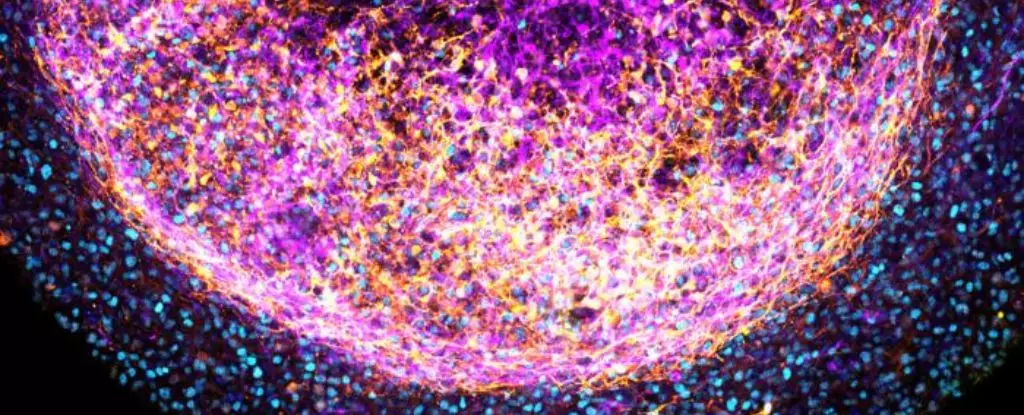In recent years, scientists have been making significant progress in the field of brain organoid research. Organoids are miniature models of organs that are created in the laboratory using stem cells. They have the potential to revolutionize our understanding of various diseases and disorders, including those of the brain. However, until now, the creation of brain organoids has been a challenging and time-consuming process. Researchers in the Netherlands have now found a way to skip some of the most difficult steps involved in creating brain organoids, which could have far-reaching implications for the treatment of brain diseases and disorders.
Traditionally, scientists have been coaxing stem cells to grow and differentiate into various types of cells, such as neurons, to create brain organoids. However, researchers in the Netherlands have taken a different approach. Instead of using stem cells, they have developed a brain organoid straight from fetal brain tissue. This self-organizing structure, which is about the size of a grain of rice, reflects a native developmental state and can be maintained for an extended period.
One of the main ethical concerns associated with brain organoid research is the use of fetal brain tissue. Obtaining fetal brain tissue from elective abortions is controversial, and its ethical allowances vary from country to country. Some countries completely outlaw its use, while others, like the Netherlands, allow its use with strict limitations. The researchers at the Princess Máxima Center and the Hubrecht Institute worked closely with bioethicists to ensure that their methodology adheres to strict ethical guidelines.
The development of brain organoids from fetal brain tissue opens up new avenues for studying brain diseases and disorders, particularly in children. Unlike organoids derived from stem cells, tissue-derived organoids reflect a fixed developmental state and can simulate the conditions found in a real brain. This makes them more valuable for studying the mechanisms underlying brain diseases and for testing potential treatments.
One of the significant advantages of the tissue-derived brain organoids is their ability to give insights into how the developing brain regulates the identity of cells. The brain organoids created by the researchers in the Netherlands contained various cell types, including neurons and supporting cells called radial glia. This is particularly exciting because radial glia are human-specific features that are not replicated in rodent models. By manipulating the organoids, the researchers were even able to create structures resembling cancerous tumors and test out drugs on them.
Another noteworthy finding from this research is the longevity of the brain organoids derived from fetal tissue. While brain organoids made from stem cells can only survive for around 80 days, the tissue-derived organoids remained alive for more than six months. Furthermore, these organoids responded to chemical signals in a manner similar to a living brain, indicating their potential for studying various brain processes and diseases.
The breakthrough in brain organoid research achieved by the researchers in the Netherlands has opened up new possibilities for studying brain diseases and disorders. By developing brain organoids from fetal brain tissue, they have created a model that closely resembles the native developmental state of the human brain. This has the potential to significantly advance our understanding of brain diseases and pave the way for innovative treatments. The future of brain organoid research looks promising, and further advancements in this field have the potential to revolutionize neuroscience.



Leave a Reply